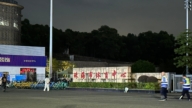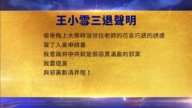【新唐人2013年06月03日訊】貴州省發佈社會發展藍皮書指出,貴州留守兒童已經達到236萬,而由於農村學校教育條件落後,和農村公共文化空洞化,致使留守兒童出現精神荒漠化,從而在思想、行為、心理上偏離了正常成長發育的軌道。報告認為,解決這些問題的辦法是將孩子「帶出去」和「回來陪」,這一觀點,被農民工普遍認為是不切合實際的「空話」。
貴州省社科院日前發佈了《貴州藍皮書•社會發展報告》指出,由於親情的缺失及管教的失當,使留守兒童們在思想道德、心理健康上極容易出現問題。孩子與父母分離的時間越長,兒童的心理健康水準越低,各種心理問題就越突出。
所謂「留守兒童」,是指父母外出打工,而自己留在農村或寄宿在親戚家中,長期與父母分開居住的孩子們。
大陸「中華全國婦女聯合會」日前發表的研究報告顯示,大陸目前農村留守兒童已達到6100多萬。有資料表明,這些留守兒童主要集中在四川、河南、安徽、湖南、貴州等勞務輸出大省,其中貴州省就有236萬人。
貴州人士張重發﹕「貴州的留守兒童還是比較多的,特別是農村的,因為現在很多年輕人進城務工,造成很多兒童滯留在農村。據我所知道的話,百分之八、九十的人進城務工。」
河南農民工張小猛:「現在他們好像每年都會回來,有時候一次,有時候兩次的,不像以前了,以前那個時候好像坐車不方便,要兩年、三年有可能的。」
張重發:「有時候一年、半年才回家一次。」
據了解,留守兒童正逐漸顯現出他們諸多的不良性格特徵,有些孩子變得任性、自私或孤僻,有些在社會交往中變得自卑,有的孩子變得難以管教,翹課、打架、抽煙喝酒,一些人甚至會因此而走上犯罪道路。調查報告說,造成孩子缺乏教養的另外一個原因是「隔代監護」,因為隔代監護會造成「重養不重教、重物質輕精神」。
河南農民工 張小猛:「孩子大多數是爺爺奶奶(照顧)吧,還有一些是外公、外婆。現在就是主要是拼經濟了,所以小孩包括受教育,其他方面,心理方面受一些負面的影響,可能他們考慮不了那麼多吧,應該說有錢人可能在乎,窮人沒有經濟能力在乎這些。」
藍皮書指出,目前解決「留守兒童」問題的好辦法是「帶出去」和「回來陪」。「帶出去」:就是讓兒童能隨父母一起遷入城市。「回來陪」就是鼓勵農民工返鄉創業或從事農業生產。但以上兩點被農民工們認為是不切合實際的「空話」。因為「帶出去」,農民工們根本負擔不起﹔而「回來陪」更是無法生存。
張重發:「帶到城裡面的話,是一個讀書、還有生活負擔的問題,有很多務工的人照顧不了孩子。城裡面的教育以及學校,都是一些民辦的學校才照顧到這些留守兒童。因為有時候,農村的各種情況養活不了自己,土地的匱乏以及環境的破壞,還有農村的生活比較苦,收入比較低,只有進城務工以後,才能解決家裏面的一些經濟問題。有時候還造成農村土地閑置,沒有人種土地。」
有媒體評論指出,目前,數量龐大的留守兒童已經成為大陸極為嚴重的社會現象,與此同時,針對留守兒童犯罪的案件也大大增加,在近期發生的校園猥褻、強姦等兒童性侵害案件中,受害者也多為留守兒童。
採訪編輯/張天宇 後製/葛雷
Over 2 Million Left Behind Children in Guizhou Province Facing Spiritual Desertification
Guizhou province has published its blue book of social development
indicating that left behind children have reached 2.36 million.
Due to falling behind in an educational environment
and a lack of public culture,
left behind children appear to have spiritual desertification.
Their thinking, behavior, and psychology have deviated
from the normal track of growth and development.
The report says that the means to solve this problem is to
“bring them out” and “come back to accompany them,”
but migrant workers generally consider these
as unrealistic “empty words.”
Guizhou Academy of Social Sciences recently published
“The Guizhou Blue Book: Social Development Report”.
It says that because of a lack of family care, these left behind
children are more prone to moral and psychological problems.
The longer the children are separated from their parents,
the lower their level of moral and mental health is,
and the more severe their psychological problems are.
“Left behind children” are the ones whose parents are migrant
workers living separately from their children over the long term.
The children are usually left with their relatives.
The All-China Women’s Federation recently published
a study showing there are now more than 61 million left behind
children in mainland China’s rural areas.
Statistics show that the left behind children are mainly
in the big provinces that do labor exports,
such as Sichuan, Henan, Anhui, Hunan, Guizhou, etc.
Guizhou has over 2 million left behind children.
Guizhou citizen Zhang Chongfa: “There are quite a lot of
left behind children in Guizhou, especially in rural areas.
Many kids are left in the countryside
because their young parents have gone to city for jobs.
As far as I know, 80-90% of the people in the countryside
go to the cities for work.”
Henan migrant worker Zhang Xiaomeng:
“They come back every year now, sometimes twice a year.
It’s different from the past, when transportation was inconvenient.
Back then it may have taken 2 or 3 years to come back once.”
Zhang Chongfa: “Sometimes they come home
once a year or after half a year.”
It’s known that left behind children gradually pick up bad habits.
Some of them become wayward, selfish or antisocial.
Some develop low self-esteem in social interactions.
Some become unruly, skip school, fight, smoke, and drink.
Some even resort to crime.
According to research reports, another reason
for kids’ bad behavior is their “grandparents guardianship”
which leads to lack of education and emphasis on materialism.
Henan migrant worker Zhang Xiaomeng:
“Most of those kids are taken care of by their grandparents.
Nowadays people mainly seek financial gain.
Thus, they don’t care the negative influences
on education and psychology.
Rich people may care about it, but poor people don’t have
the financial ability to care about it.”
The blue book indicates that the best solutions are to
“bring the children out” and “come back and accompany them.”
“Bring them out” means parents should bring their kids to cities.
“Come back and accompany them” is to encourage
the migrant workers to come home for farm work
or other work in the countryside.
But migrant workers consider the two methods unrealistic.
Because they can’t afford to take their kids with them,
and they can’t survive if they come back to work.
Zhang Chongfa: “If the parents take their kids to cities,
they need to support their schooling and living expenses.
Many of the migrant workers can’t take care of that.
Only private schools in cities accept left behind children.
Because of many reasons, the migrant workers
can’t live on their own in the countryside.
There is not a lot of land, and the environment is ruined.
Life in the countryside is tough, and the income is low.
They can only solve financial problems by working in the city.
There are also idle lands in the countryside no one takes care of.”
Media commentary have pointed out that left behind children
have become a severe social phenomenon now.
Meanwhile, crimes against left behind children are increasing.
Left behind children are also the majority of victims of recent
campus abuse scandals, child abuse and rape cases are.




























